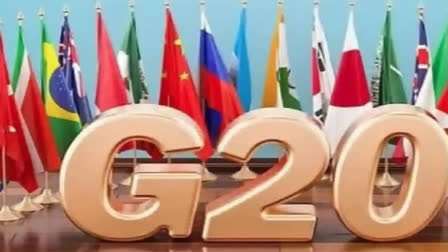New Delhi:In light of significant geopolitical challenges, including the pandemic and conflicts in regions like the Middle East and Ukraine, emerging economies are increasingly seeking alternatives to Western-dominated frameworks of global governance. Forums such as the G20 and BRICS highlight this desire for a more multipolar world.
Currently, Brazil is hosting the G20, having enthusiastically taken over the presidency from India in 2023. Following this event, Brazil will hand over the leadership to South Africa, continuing a constructive cycle of cooperation among nations.
This marks the fourth consecutive year that the G20 has been led by a country from the global South, starting with Indonesia in 2022. This consistent leadership not only highlights the growing influence of developing nations, but also encourages a more inclusive dialogue on global issues.
Furthermore, the BRICS alliance has emerged as an essential forum for countries in the global South, providing a collaborative space for these nations to express their needs and concerns, fostering a stronger sense of unity and progress.
In fact, South Africa will be the first African country to lead an important global forum. For a long time, it has been the only voice for the entire continent. Last year, the African Union became a permanent member of the G20, thanks to support from the Indian presidency. This change makes the forum more inclusive and allows countries that have been excluded from world politics to have a voice. Former Ambassador and Consul General of India in Sao Paulo, Brazil, Jitendra Tripathi explains the role of India as the voice of Global South.
In an exclusive conversation with ETV Bharat, Tripathi said, "India took the lead in advocating for the Global South by hosting its inaugural G20 virtual meeting in January, last year. This initiative was followed by a series of meetings aimed at this objective, culminating in the G20 Summit held in India in September, which included the participation of the African Union, representing 54 nations. This development underscored the G20's focus on the Global South, positioning it as a significant platform for reforms benefiting these nations”.
“Additionally, BRICS Plus has expanded to include several other countries. While Russia was initially viewed as a developed nation and Saudi Arabia has yet to fully engage, other members like the UAE are still classified as developing nations. This indicates that BRICS Plus is largely influenced by the Global South. India’s role in this context is notably unique and advantageous. It serves as an unofficial yet widely acknowledged representative of the Global South while also being a regular participant in G7 Summits for the past eight years. This dual position allows India to act as a bridge between the Global South and wealthier nations, facilitating dialogue on the concerns of developing countries and advocating for their interests”, the former diplomat said.
India’s role as a Troika member
He emphasised that India played a pivotal role as a part of the G20 Troika, along with Brazil and South Africa, adding, “As a part of Troika, India has consistently advocated for a peaceful and negotiated resolution to conflicts rather than resorting to warfare and violent measures.
In pursuit of this objective, India has engaged in discussions with global leaders, including President Zelensky of Ukraine and President Putin of Russia, as well as Israeli Prime Minister Netanyahu and Palestinian President Abbas.
In the context of the Ukraine-Russia conflict, both President Zelensky and President Putin have indicated their willingness for India to facilitate a constructive dialogue aimed at achieving an amicable resolution. However, the process has been hindered by the firm stances adopted by the US-led NATO alliance and the corresponding position of Russia.
